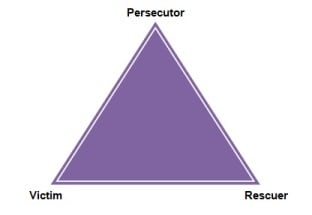Somehow over the past few years it became OK to make promises and not keep them. The excuses? We’re too busy or we didn’t know or gosh, we just darn forgot.
Wait a sec—we were too busy/unaware/forgot to keep our promises?
How did low accountability become so common?
The Accountability Epidemic is here.
And it’s rampant.
Oh! I Was Supposed To Watch Over the $1.6 Billion? Oops.
MF Global is the most high-profile patient of the Accountability Epidemic.
Recently MF Global executives admitted to drafting and instituting a “break the glass” emergency plan weeks before the global investment firm collapsed– due to its ill-advised bet on European sovereign bonds. MF Global Chief Risk Officers Michael Stockman and Michael Roseman appeared before the House Financial oversight committee, where they artfully dodged questions raised concerning their involvement in the escape plan.
MF Global CEO Jon Corzine had made upbeat predictions about the firm on Oct 25, 2011 at the MF earnings conference call. MF Global filed for bankruptcy on Oct 31. Yes, 6 days later.
But wait. There’s more.
According to prepared testimony by Standard & Poor’s Ratings Services, Mr. Steenkamp, the MF Global CFO, told the agency that he believed the firm’s “capital and liquidity has never been stronger” in an Oct. 24 email. Yep, the email was sent one week before the firm filed for bankruptcy protection.
And now, for the final accountability blow, MF Global has “misplaced” $1.6 billion of their client’s money. WOW. Prognosis: Terminal.
Let’s Pretend That Didn’t Happen
British Petroleum is a great example how the Accountability Epidemic has kicked into high gear at the corporate level.
Back in 2010 Harvard Professor Rosabeth Kanter wrote a terrific blog questioning the organizational structure and accountability of BP immediately following the Deepwater spill. She points out that after the 2005 and 2006 incidents CEO Tony Hayward did nothing to change the culture of BP, even though he was brought in to specifically address accountability issues.
Then a House Commerce Committee letter to CEO Hayward described all the technical oversights and unheeded safety precautions leading up to the Deepwater explosion. In the letter the blame is set squarely on Hayward and BP’s valuation of economic profit over the well-being on their employees, the environment, those individuals who could be affected by such an explosion/oil spill.
And now BP’s legal team is attempting to bar their prior safety/accident record from the federal lawsuit regarding the 2010 Deepwater spill. Seems BP wants info involving a 2005 explosion at their Texas City refinery and a 2006 oil spill at their Prudhoe Bay field in Alaska to be removed from the record. Conclusion: British Petroleum has historically valued the bottom line over accountability and safety through its use of a finely tuned legal department to evade responsibility for accidents and lawsuits. Seriously? Prognosis: Serious, still has a wafer thin chance of recovery.
Had enough?
Me too.
Rx for the Accountability Epidemic
I’m not naïve enough to think we can end the Accountability Epidemic, but I do think we can reduce it, in ourselves, our Board rooms, executive suites, management teams, direct reports, colleagues, families, friends, everywhere. Here’s how:
1: Communicate so all parties understand accountability is expected.
When I work with clients I repeatedly witness five types of communication:
- Info sharing
- Point proving/debating/decision making
- Sharing of oneself
- Requests
- Promises
Only two communication types contribute to accountability: requests and promises. When we start to make clear requests and ensure we receive specific promises (detailed deadlines and a specific description of what is expected), we’ll see our own and our team’s accountability increase.
2: Lower the bar.
Often accountability breaks down because we set unrealistic response times. I budget 8-10 hours per week for unexpected events, and rarely do I end up not needing it. There are fires to fight, the client who needs extra help, the colleague that wants a connection, you name it. When your schedule is packed too tightly urgent requests push something out of the way, and low accountability results.
Rank the requests you receive. For example clients get served first, team members second, prospects third and so on. Ranking response times based on the requester enables us to set more realistic response expectations. Oh—and if you’re in the middle of a huge personal change (a home renovation, an upcoming wedding, etc.) pad your deadlines by 25-50%. You’ll need the extra wiggle room.
I now feel comfortable saying “I’ll get back to you on that within two weeks” for a lower ranking request. Lowering the bar is liberating—and you’ll feel better because you’ll know you can deliver within the longer window.
3: Ditch, delegate, defer, do less.
Is every project on your to do list truly contributing to your most important objectives? If not, it’s time to ditch, delegate, or defer whatever won’t move the needle. I have a file called Someday/Maybe where I stash all the “great ideas” I come up with that I know aren’t essential now. I go through it every six months. It never ceases to amaze me how many ideas don’t look so brilliant after a little time has passed.
In my next blog I’ll provide a framework and weekly plan to help you and your team become more accountable with ease. Together we’ll stop the spreading of the Accountability Epidemic.






